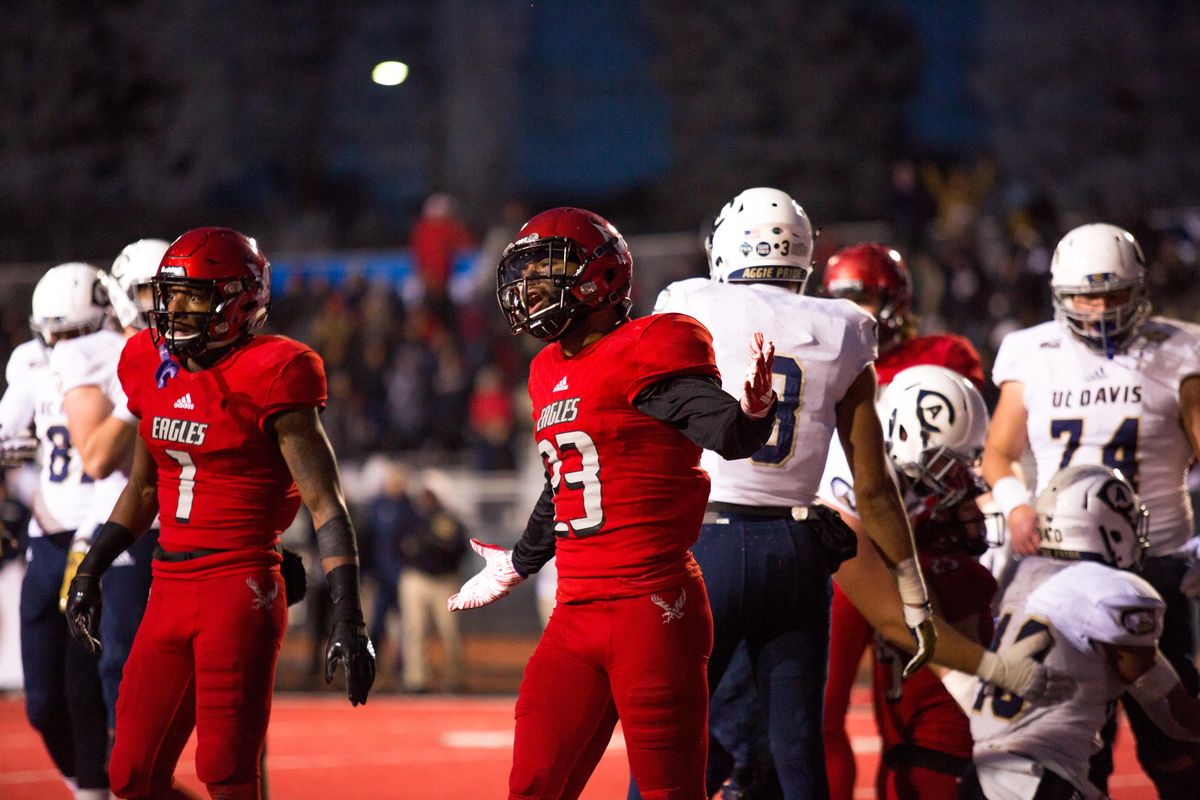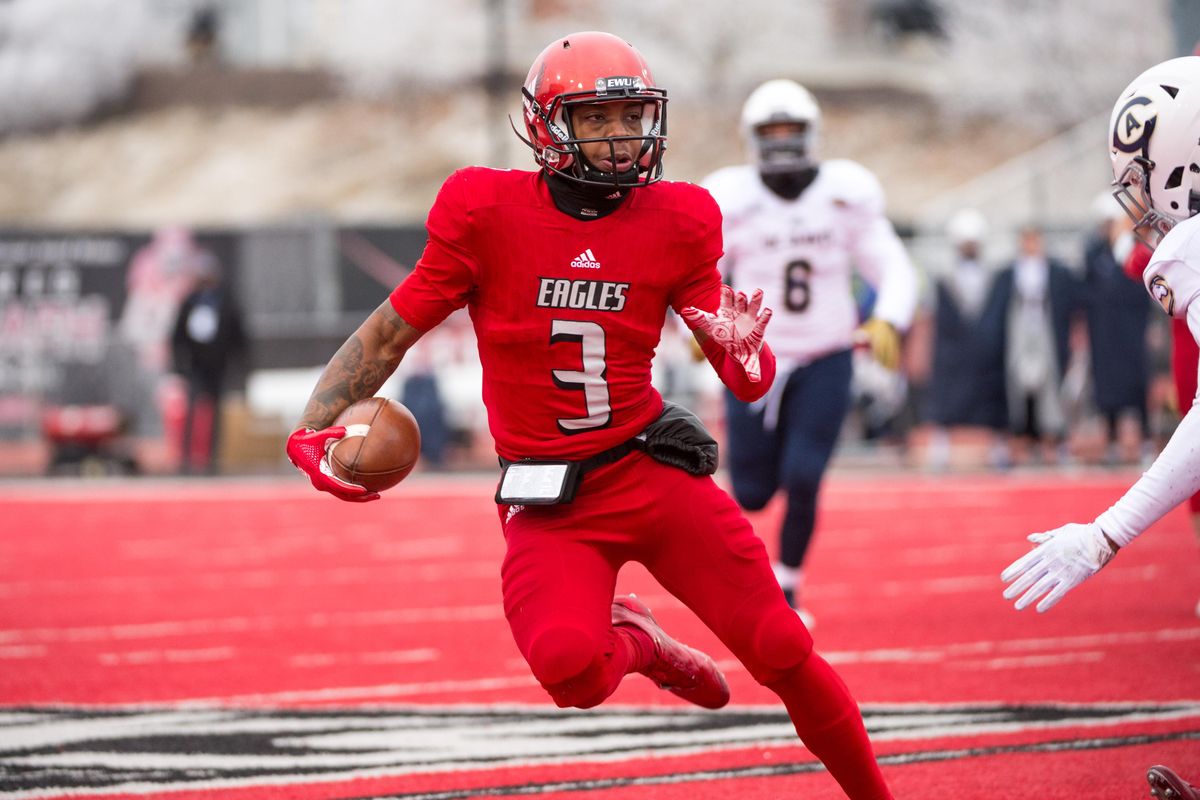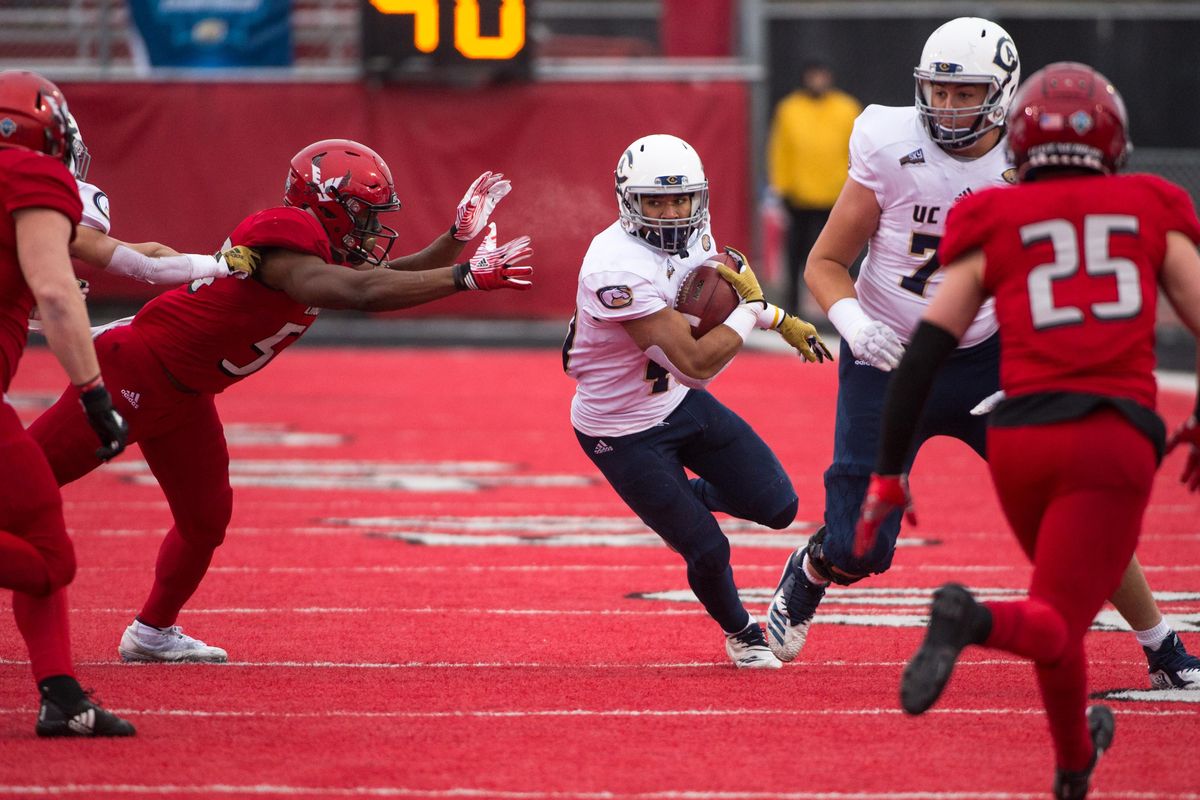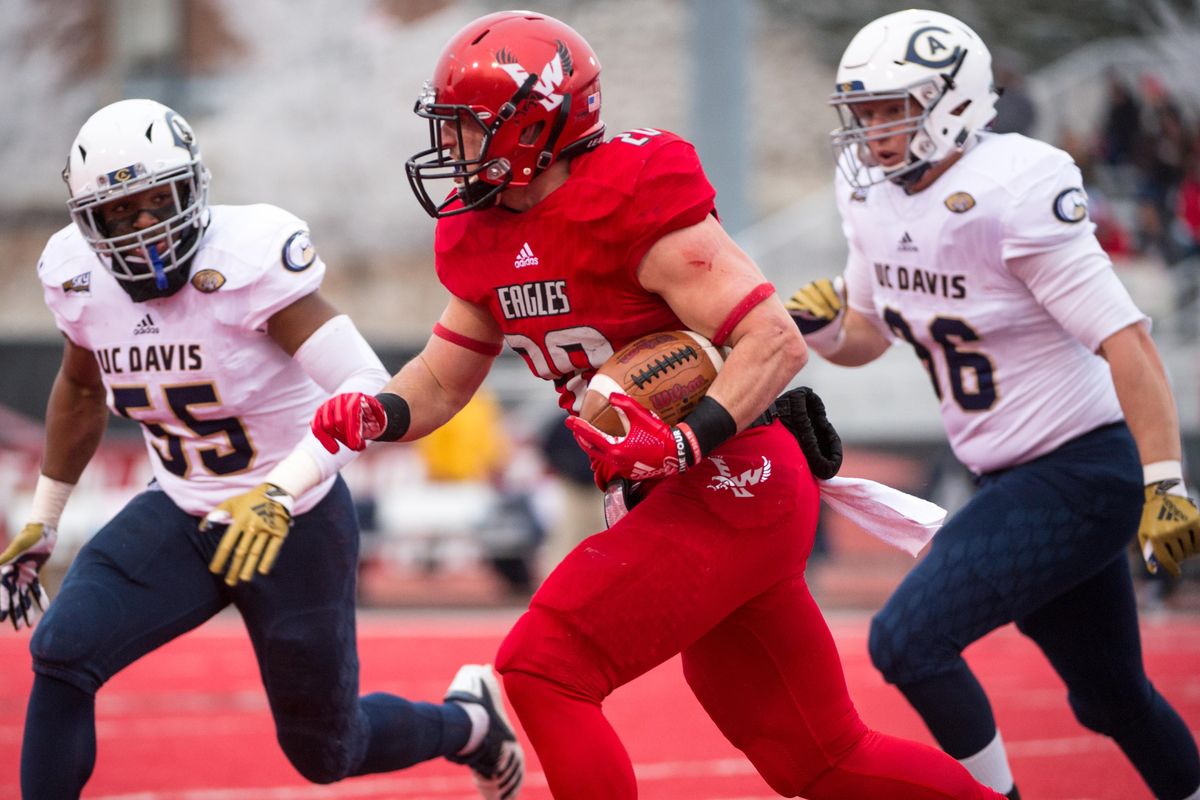Dan Thompson: Eastern Washington passes on the pass, runs through UC Davis and into FCS semifinals
Quarterback Eric Barriere (3) of Eastern Washington University carries the ball upfield in an FCS quarterfinal game against UC Davis at Roos Field in Cheney, Wash. on Dec. 8, 2018. The Eagles beat the Aggies 34-29 and Barriere gained 29 rushing yards. (Libby Kamrowski / The Spokesman-Review)
When Eastern Washington promoted Aaron Best to head coach 22 months ago, he said at the time that he had no intention of changing the team’s pass-first identity.
Understandably so. Why change something that had carried you to a national title and five of the previous seven playoffs?
But Best wasn’t all that true to his word – and wisely so.
The Eagles won in dramatic fashion on Saturday night, 34-29, advancing to host another FCS semifinal next weekend – their fifth such opportunity, including the 2010 national championship season.
But they didn’t win solely on the strength of Eric Barriere’s arm. Instead, they did it by breaking Best’s promise and playing run-first football.
For all the wild successes of the nine-year Beau Baldwin era, if there was one knock against the former Eagles coach, it was that his teams didn’t run the ball all that well.
Often, that didn’t matter. They ran for just 25 yards in the 2010 title game, for example.
But they also had a penchant for eventually losing to underdogs in the playoffs, teams that could contain whichever all-conference quarterback the Eagles had at the time.
The Eagles have played their last 16 playoff games at Roos Field, a quirky streak that validates their regular-season success.
Yet they’ve lost a home playoff game each of their previous four postseasons, mostly because the other team could run the ball and they couldn’t.
In 2016, it was Youngstown State rumbling for 262. Two years earlier, Illinois State did them better (336). Towson racked up 241 in 2013, and Sam Houston State paraded through the Eagles defense for a whopping 418 yards in 2012.
Those are not inspiring numbers, and any pass-heavy offense would be pressed to keep up.
The Aggies did plenty of damage to the Eagles’ defense on the ground on Saturday, with 191 yards, but the Eagles did them a bit better. And Eastern was committed to it, with 214 yards on 42 carries.
Surely that’s because Best, as a former offensive lineman with a grind-it-out mentality, recognized that for as prolific as the Eagles were before, they had to restore some balance.
“When I first came here, we maybe ran the ball 10 times a game, and I was lucky to get a carry,” said senior Sam McPherson, who had 143 rushing yards and even completed a 33-yard pass. “Now it’s almost a perfect balance that we have. … Now we can really lean on this run game, and it opens up the pass game.”
Of course, the Eagles can still throw. And that’s the point: balance on offense, stoutness and depth on defense. Which is why the Eagles are better positioned this year to reach the championship game than they were in their previous four playoffs.
Two instances Saturday emphasized this change in strategy.
Behind 21-14 and buried at their 18-yard line with 12:56 left in the game, the Eagles opened a drive with a 12-yard McPherson run, and kept at it.
They ran five times and threw three times – all completions – and tied the game with a Barriere 5-yard run on a read-option.
Again, after UC Davis took the lead 29-28, the Eagles scored the winning touchdown not because of a Barriere heave – something of which he’s certainly capable – but with a Barriere 29-yard scramble, an 11-yard screen that Nsimba Webster muscled into a first down, and McPherson’s touchdown run from 35 yards out.
November and especially December weather is volatile. A solid running game, however, mitigates those uncertainties.
“When we played Youngstown, it was cold out and it was tough to throw the ball, and they were just keying on the pass the entire time,” McPherson said. “Now that we have a run game, they can’t just key on the pass game, and it just opens up so many more things for our offense.”
At his portion of the press conference, Best, unprompted, highlighted the contributions of the Eagles’ strength coach, someone who, for all the work he does during the season, is rarely mentioned after games.
But that’s the mentality Best has brought to the Eagles. Two years ago, they led the Big Sky in passing (401 yards per game) but were 12th in rushing (128).
This year, they were second in rushing (271) and third in passing (272).
That’s what earns you conference coach of the year honors, and more important, it’s what wins playoff football games.









































